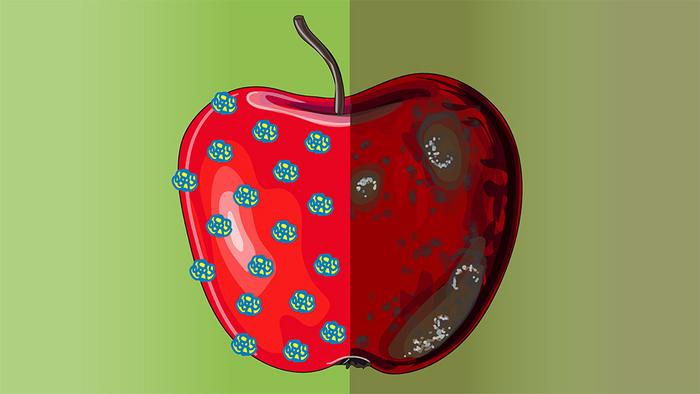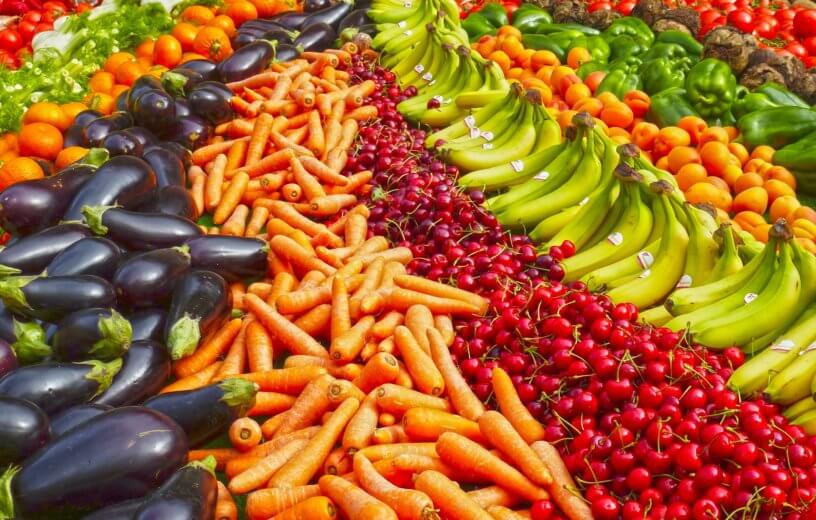COLLEGE STATION, Texas — Nowadays, it seems like more and more food recalls are popping up. It makes sense that scientists and researchers are constantly trying to find new ways to improve food safety. Now, researchers at Texas A&M University are working on a new coating that may keep produce free of harmful bacteria longer than ever before.
“We are living in an age where technology has advanced so much,” says Dr. Mustafa Akbulut, a professor of chemical engineering. “However, the food industry has not competed with these advances, and there are continuous problems with food safety. News about foodborne diseases and outbreaks reporting hundreds of people becoming sick from unhygienic food frequently appears at the national level.”
Currently, many fruits and vegetables already come with a layer of food-grade wax that’s applied to make the food shiny and to block water loss. This research combined this wax with nano-encapsulated cinnamon-bark essential oil in protein carriers to make a new wax that also yields antibacterial benefits. The coating technology helps strengthen the safety of produce and fight off bacteria and fungi.
Horticultural science professor Luis Cisneros-Zevallos notes that the coating helps deepen the understanding of the interactions between unwanted microorganisms and the wax.
“I think that the impact that these wax coatings will have on the industry is very big because the industry is looking for new technologies,” says Cisneros-Zevallos in a university release. “This is one of those tools that we are developing that could actually help the industry face these challenges against human pathogens and spoilage organisms.”

The cinnamon bark essential oil works by making it more difficult for bacteria to attach and live on fruits and vegetables. These pathogens are often a concern in produce because they are frequently consumed raw or minimally processed, which means they aren’t as exposed to high temperatures that can deactivate germs. The nano-encapsulation aspect helps the oil provide a delayed release, which increases the half-life and allows it to act longer.
“When bacteria are exposed to essential oil it can break down the bacterial wall,” explains Akbulut. “This technology is going to basically help us inactivate the bacteria and fungi to extend the shelf life.”
“This coating was also inhibiting the fungal attachment,” says doctoral student Yashwanth Arcot, who conducted experiments to support the research. “We have tested this system against Aspergillus, a fungus responsible for the spoilage of food commodities and the onset of lung infections in humans. We were successful in preventing its growth on the hybrid coatings.”
Arcot adds that this is the first hybrid technology development using nano-encapsulated essential oil in food waxes to kill bacteria and fungus. The chemicals used for its production are FDA-approved antibacterial agents.
“These hybrid wax coatings are easily scalable and can be implemented in food processing industries,” concludes Arcot.
A Dietitian’s Take
Currently, 30 to 40 percent of the food supply in the United States ends up as food waste, according to the United States Department of Agriculture. This doesn’t mean that consumers are directly wasting this much food, as it can occur at any point in the production process before reaching your table.
Spoilage and exposure to mold and bacteria are two big reasons that food, particularly produce, ends up in the trash before it even reaches your local store. The best way to prevent this from happening is by not creating the problem in the first place.
Improved product development has the potential to make significant shifts, and researchers know it. This nano-encapsulated coating has the potential to turn things in the right direction. The ingredients used to develop the wax coating are already FDA-approved.
Research on health implications in human beings might be another thing to consider, especially with rising public concerns about ingredients in foods and the possible health implications. As it stands now, many people are already hesitant to buy conventional produce because of the existing wax found on foods like apples, and pesticide and herbicide use.
The findings are published in the Current Research in Food Science.
